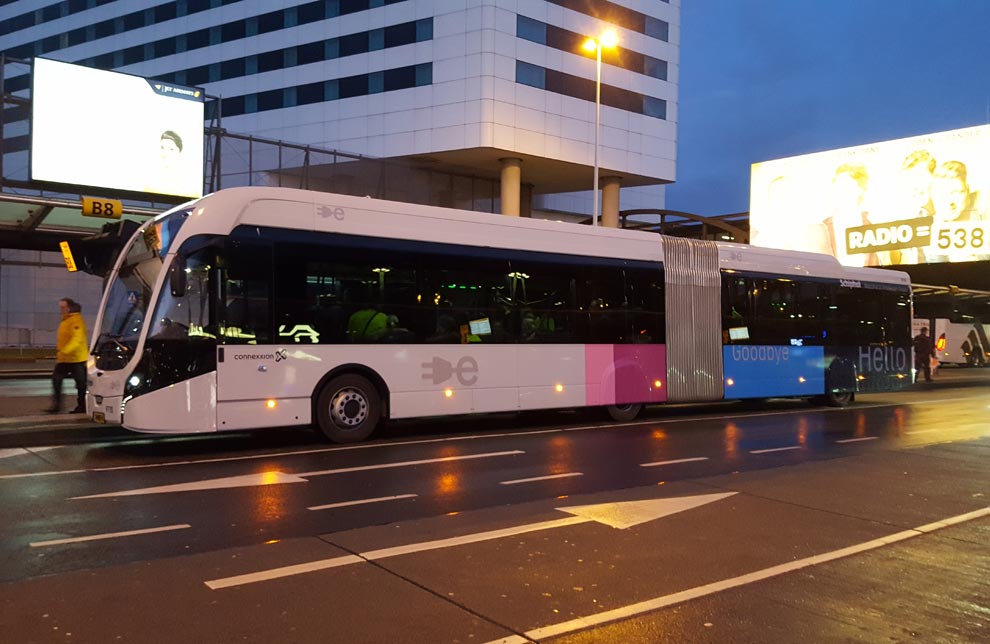Encouraging sustainable air traffic
Schiphol stimulates air traffic sustainability in various ways. For instance, with investments into the development of sustainable fuels and our commitment to more efficient fuel use. We reward the deployment of cleaner aircraft by asking airlines to pay less when they land at Schiphol. We are also committed to more efficient use of European airspace and advocating for short distance train travel (of up to 700-km). Our ambition is to have an aviation sector without emissions.

Clean planes pay less
Airlines have to pay to land at Schiphol. Schiphol encourages those airlines to use quieter and cleaner aircraft by making them pay less for cleaner planes. It will become increasingly cheaper for cleaner planes and increasingly expensive for polluting ones over next 2 years. It will cost 180% of the basic rate for the noisiest and most polluting aircraft from 2021 onwards. The quietest and cleanest planes will only pay 45% of the basic rate.
Sustainable fuels
Sustainable fuel is a necessary alternative for aviation in order to reduce its short-term emissions. Scientific research has shown that alternative fuel emits less ultrafine particles than regular kerosene. Schiphol and other parties from the aviation sector have agreed to expand the share of sustainable fuel with a target share of 14% in 2030.
This will be done by investing in the special refinery for sustainable jet fuel that is being built by SkyNRG in Delfzijl, among other measures. The factory will produce 100,000 tonnes of sustainable jet fuel from 2022 and 15,000 tonnes of sustainable propane per year as a by-product. Synthetic kerosene is another sustainable fuel. Research is currently underway at Rotterdam The Hague Airport, part of Royal Schiphol Group.
Optimise flight routes
Schiphol is committed to optimising arrival and departure routes to reduce emissions. We look at various aspects like safety, noise and sustainability. We are in favour of a Single European Sky (SES). This is a project of the European Commission to achieve a common European air traffic control. That way, European airspace can be used more efficiently, which will ultimately lead to fewer emissions.